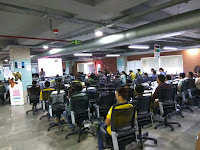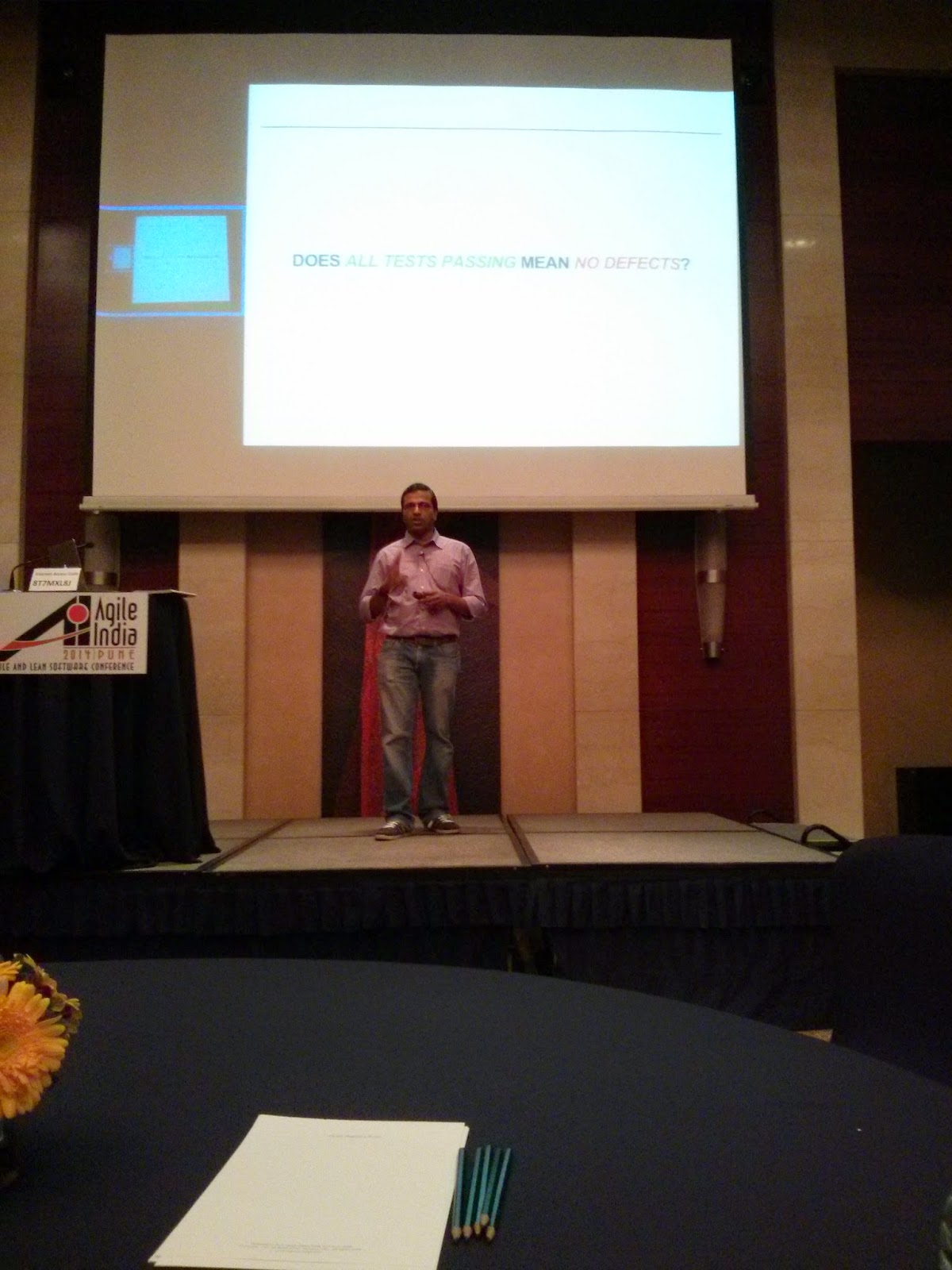Here I spoke about - "The What, Why and How of Web Analytics Testing".
Abstract
Learn what is Web Analytics, why is it important, and see some techniques how you can test it manually and and also automate that validation. But just knowing about Web Analytics is not sufficient for business now.
There are new kids in town - IoT and Big Data - two of the most used and heard-off buzz words in the Software Industry!
With IoT, with a creative mindset looking for opportunities and ways to add value, the possibilities are infinite. With each such opportunity, there is a huge volume of data being generated - which if analyzed and used correctly, can feed into creating more opportunities and increased value propositions.
There are 2 types of analysis that one needs to think about.
1. How is the end-user interacting with the product? This will give some level of understanding into how to re-position and focus on the true value add features for the product.
2. With the huge volume of data being generated by the end-user interactions, and the data being captured by all devices in the food-chain of the offering, it is important to identify patterns from what has happened, and find out new product / value opportunities based on usage patterns.
With IoT, with a creative mindset looking for opportunities and ways to add value, the possibilities are infinite. With each such opportunity, there is a huge volume of data being generated - which if analyzed and used correctly, can feed into creating more opportunities and increased value propositions.
There are 2 types of analysis that one needs to think about.
1. How is the end-user interacting with the product? This will give some level of understanding into how to re-position and focus on the true value add features for the product.
2. With the huge volume of data being generated by the end-user interactions, and the data being captured by all devices in the food-chain of the offering, it is important to identify patterns from what has happened, and find out new product / value opportunities based on usage patterns.
Slides
Video
PS: Apologies for the video quality - I am not seen very clearly - but the slides are bright & clear, and so is the audio - so the important aspects are covered!
Pictures
Feedback
My Takeaway & Learning
- The attendees did not have much exposure to Web Analytics, and how it works. I should spend more time in speaking about that
- I should spend more time in challenges and potential solutions related to Big Data & IoT
- A lot of people are interested in WAAT - that could be a separate, more detailed discussion



















